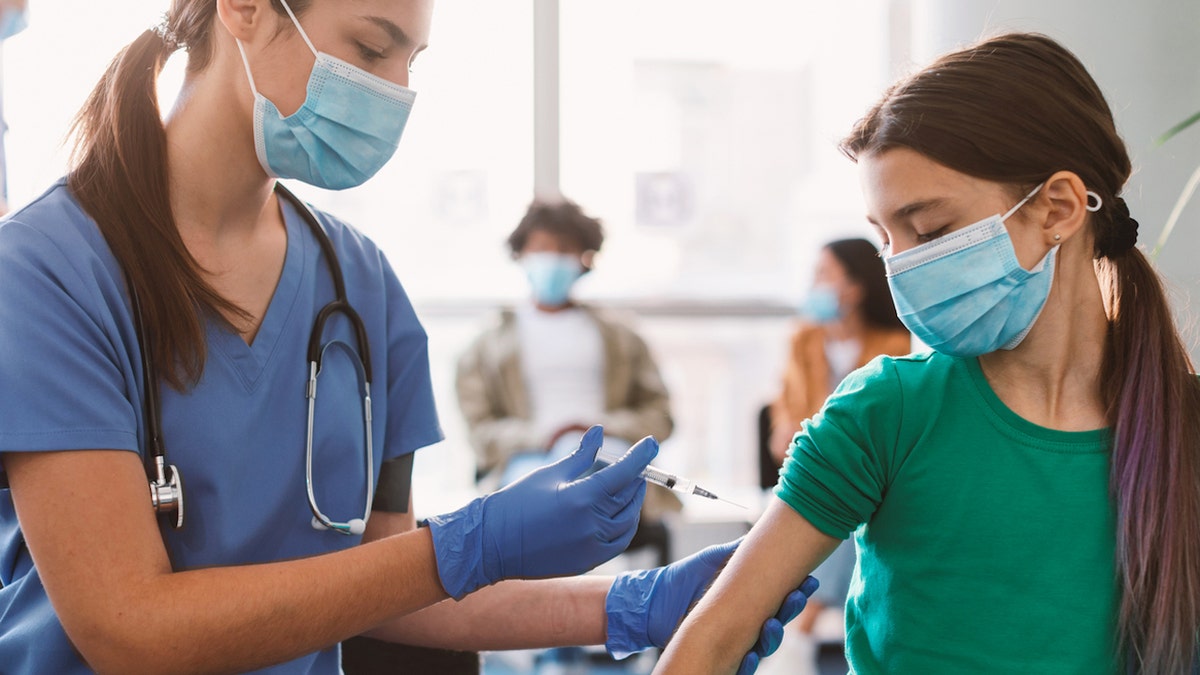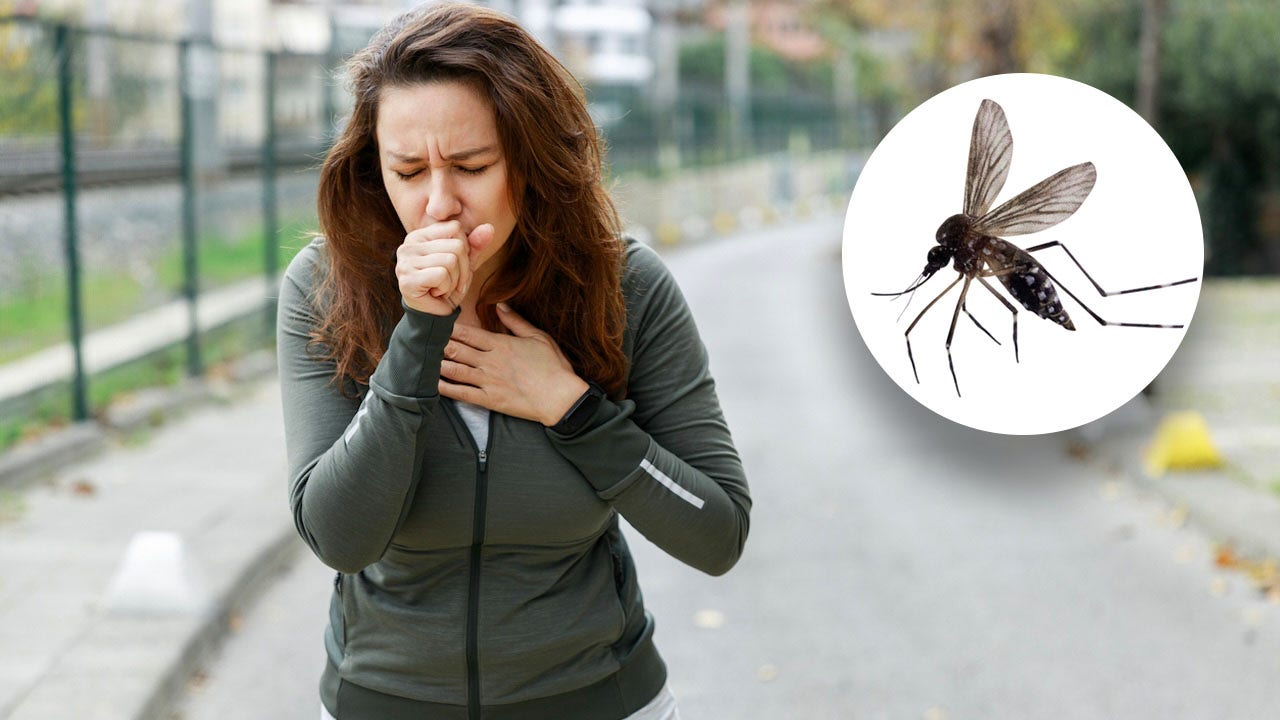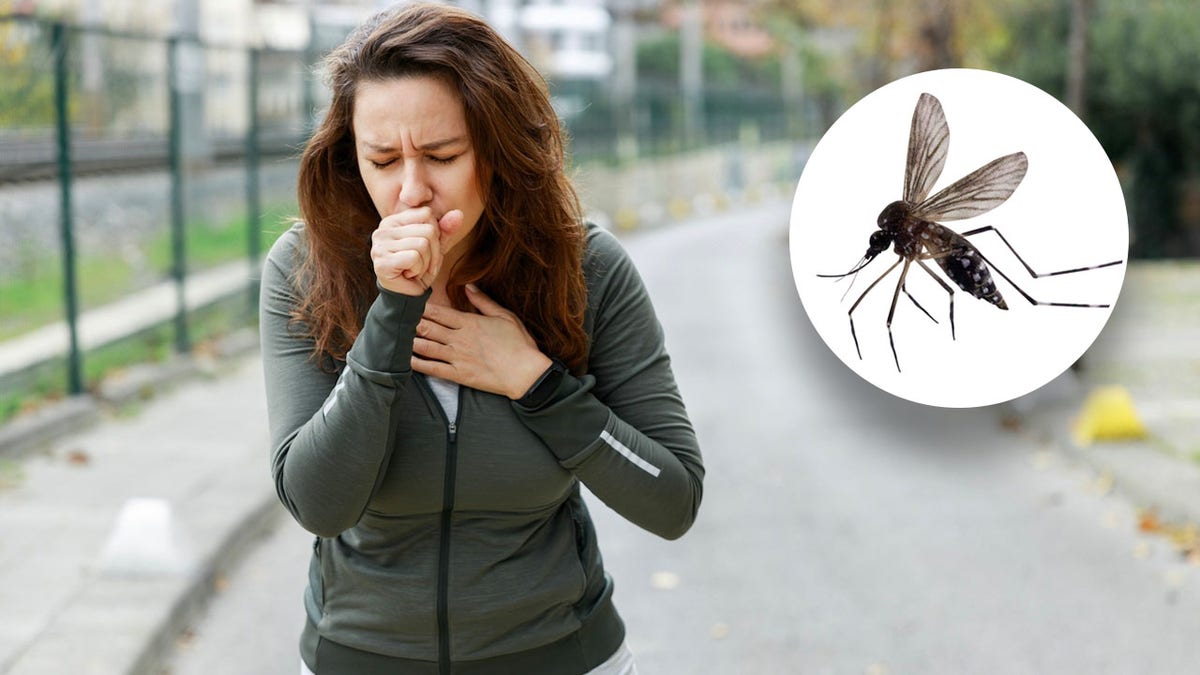Health
Cases of COVID variant BA.2.86 have tripled in 2 weeks, says CDC report

Cases of the COVID-19 variant Omicron BA.2.86, also known as Pirola, have tripled in two weeks, comprising between 5% and 15% of all infections, according to the Centers for Disease Control and Prevention (CDC).
The COVID-19 variant Omicron BA.2.86 — as well as its offshoots, including JN.1 — has been reclassified as a “variant of interest” by the World Health Organization (WHO).
Despite its prevalence, BA.2.86 “does not appear to be driving increases in infections or hospitalizations in the United States,” the CDC stated in its report.
OVER HALF THE PEOPLE WHO GET COVID HAVE LINGERING SYMPTOMS AFTER 3 YEARS, NEW STUDY FINDS
Both the CDC and WHO agree that “the public health risk posed by this variant is low compared with other circulating variants.”
The updated COVID-19 vaccines that were approved by the FDA in September are believed to “increase protection against BA.2.86, as they do for other variants,” the CDC noted.
Cases of the COVID-19 variant Omicron BA.2.86, also known as Pirola, have tripled in two weeks, comprising between 5% and 15% of all infections, according to the CDC. (iStock)
“To date, existing vaccines have been very effective in protecting people, particularly those who have been boosted multiple times through a vaccine or natural infection, not only from symptomatic infection, but importantly from severe disease, hospitalization and death,” said Richard Reithinger, PhD, a distinguished research fellow in the Global Health Division at International Development Group in Washington, D.C., in a statement to Fox News Digital.
COVID IS NOT A CONCERN FOR AMERICANS HEADING INTO CHRISTMAS, OTHER HOLIDAYS, SAYS SURVEY: ‘JUST ANOTHER VIRUS’
The CDC said it is not clear whether BA.2.86 causes different symptoms — but noted that most variants produce similar effects.
“The types of symptoms and how severe they are usually depend more on a person’s immunity than which variant causes the infection,” the statement said.

Despite its prevalence, BA.2.86 (also known as Pirola) “does not appear to be driving increases in infections or hospitalizations in the United States,” the CDC stated in its report. (iStock)
The variant is also expected to respond to the current tests and treatments.
Reithinger noted that while the pandemic is officially over, COVID-19 is not a thing of the past.
“A concern of the new BA.2.86 variant was that because it has 35 mutations in the spike protein, it would be able to evade the immune response more readily than other variants that emerged in the last couple of months,” he told Fox News Digital.
“Early clinical data does not seem to indicate this being the case.”
CLICK HERE TO SIGN UP FOR OUR HEALTH NEWSLETTER
The increase in BA.2.86 cases is due to the U.S. entering the “COVID-19 season” and also a sufficient number of people having developed non-BA.2.86 immunity, according to the doctor.
Outside of vaccines, Reithinger recommends that high-risk groups adopt risk-mitigating behaviors, including wearing masks, frequently washing hands and avoiding crowded environments.

The updated COVID-19 vaccines that were approved by the FDA in September are believed to “increase protection against BA.2.86, as they do for other variants,” the CDC noted. (iStock)
“People — particularly those with greater risk of infection and severe disease — should continue to be sensitized and vigilant about COVID-19 and the disease it may cause,” he told Fox News Digital.
“People who are at greater risk of infection and severe disease should consult with their physicians about whether they should be administered one of the currently available boosters,” he added.
Those at highest risk include people older than 60 years, the immunocompromised, those with comorbidities such as asthma and diabetes, and people working in high-risk-of-exposure employment, such as the service industry, Reithinger noted.
For more Health articles, visit www.foxnews/health.

Health
What Happens If You Eat Eggs Every Day? Nutritionists Share the Benefits

Sign Up
Create a free account to access exclusive content, play games, solve puzzles, test your pop-culture knowledge and receive special offers.
Already have an account? Login
Forgot your password?
Get back to the Sign In
Use left and right arrow keys to navigate between menu items.
Use escape to exit the menu.
Health
Ask a doctor: ‘I swallowed a bug — now what should I do?'

Most people have experienced that moment of discomfort when they realize a bug has wound up where it shouldn’t be — in their windpipe.
That includes Taylor Swift, who on more than one occasion has accidentally swallowed a bug while performing on stage in front of thousands of people.
It can be a startling and somewhat disgusting occurrence — but is this dangerous, or just a nuisance?
LOCAL DENGUE FEVER CASES CONFIRMED IN FLORIDA KEYS, SPREAD BY MOSQUITO BITES
Dr. Raj Dasgupta, a quadruple board-certified physician in California, shared with Fox News Digital the true impacts of accidentally swallowing a bug, and the best thing to do if it happens.
“Swallowing a bug can often happen accidentally when you’re eating or drinking outside, or if a bug flies into your mouth,” Dasgupta, who serves as chief medical advisor for Fortune Recommends, told Fox News Digital via email.
Dr. Raj Dasgupta, a quadruple board-certified physician in California, discussed the impact of accidentally swallowing a bug — and the best thing to do if it happens. (Sleepoplis)
“It can also happen if you’re talking or laughing outdoors. Sometimes it might even happen indoors if bugs are in your food or drink and you don’t realize it.”
ASK A DOCTOR: ‘HOW CAN I PREVENT SCARRING FROM BUG BITES AND POISON IVY?’
Swallowing a bug is usually not dangerous, Dasgupta noted.
“The stomach’s digestive acids usually break down the bug, and it is passed out of the body without causing harm,” he said.

“Swallowing a bug can happen accidentally when you’re eating or drinking outside, or if a bug flies into your mouth,” the doctor told Fox News Digital. (iStock)
If the bug carries harmful bacteria or parasites, however, it could cause gastrointestinal issues or allergic reactions, according to the doctor.
The type of bug can make a difference, he said.
“Bugs like beetles or ants are less of a concern, but bugs that are known to spread diseases — such as mosquitoes — might be riskier.”
If you happen to swallow a bug, drinking some water can help wash it down, Dasgupta said.

Taylor Swift has announced the accidental swallowing of bugs, mid-concert, on more than one occasion. (Marcelo Endelli/TAS23/Getty Images for TAS Rights Management)
“If you start feeling sick, like abdominal pain, vomiting or nausea, keep an eye on your symptoms,” the doctor said.
If you have severe stomach pain, ongoing vomiting, trouble breathing, or swelling, rash or itching, Dasgupta said to see a doctor.
CLICK HERE TO SIGN UP FOR OUR HEALTH NEWSLETTER
“If you know the bug could have diseases or if you have health conditions that might complicate things, it’s a good idea to get checked out to be safe,” he added.
For more Health articles, visit www.foxnews/health
Some bugs — including grasshoppers, beetles, termites, mealworms and even stink bugs — are actually considered edible in certain countries, and are prepared and eaten as part of meals, according to WebMD’s website.
Health
“I’m a Dietitian, and Here’s Why an Overly Restrictive Diet Can Backfire”

Sign Up
Create a free account to access exclusive content, play games, solve puzzles, test your pop-culture knowledge and receive special offers.
Already have an account? Login
Forgot your password?
Get back to the Sign In
Use left and right arrow keys to navigate between menu items.
Use escape to exit the menu.
-

 World1 week ago
World1 week agoOne dead after car crashes into restaurant in Paris
-

 Midwest1 week ago
Midwest1 week agoMichigan rep posts video response to Stephen Colbert's joke about his RNC speech: 'Touché'
-

 News1 week ago
News1 week agoVideo: Young Republicans on Why Their Party Isn’t Reaching Gen Z (And What They Can Do About It)
-

 Movie Reviews1 week ago
Movie Reviews1 week agoMovie Review: A new generation drives into the storm in rousing ‘Twisters’
-

 News1 week ago
News1 week agoIn Milwaukee, Black Voters Struggle to Find a Home With Either Party
-

 Politics1 week ago
Politics1 week agoFox News Politics: The Call is Coming from Inside the House
-

 News1 week ago
News1 week agoVideo: J.D. Vance Accepts Vice-Presidential Nomination
-

 World1 week ago
World1 week agoTrump to take RNC stage for first speech since assassination attempt
















